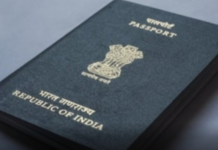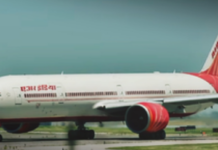New Delhi– A new study commisioned by SAP Concur shows increasing willingness among 99 per cent of Indian business travelers to resume work trips within the next 12 months. Over 78 per cent are very willing to get back on work trips. This is higher than the global average.
Respondents to the survey carried out in India, Singapore, Malaysia, China, Hong Kong, Taiwan, Japan, South Korea, Australia, and New Zealand believe that the current travel hiatus is hurting their careers – by impeding their business goals and personal lives. While professionals are eager to restart in-person meetings soon, they also want greater control over how they will travel, so that their safety and health can be better safeguarded amidst the pandemic.
“Covid-19 has upended business travel in the past year and a half. Yet, it has also reaffirmed business travel’s importance in forging business and personal connections, and enabling career advancement,” said Dr Carl Jones, Vice President and Head of Strategy for SAP Concur Asia Pacific.
“While uncertainty continues to linger around travel curbs, firms can support business travellers by updating travel policies to provide more flexibility in flight and accommodation selection, better-protecting employees’ health and safety. Then as vaccinations progress and travel bubbles form in the coming months, they will be better positioned to enable safe travel, facilitating business growth and talent retention.”
Key findings from the study of Indian business travelers include:
Travellers believe the inability to travel will hurt them both professionally as well as personally
Like their global counterparts, over 84 per cent of Indian business persons worry that the inability to increase travel will affect them personally. These concerns include: The difficulty in developing and maintaining business connections (59 per cent in India compared to 45 per cent globally); Not advancing in their career (43 per cent compared to 33 percent globally); Making less money (40 per cent compared to 38 per cent globally)
On the business front, Indian respondents worry that if their organization does not increase business travel, it will be difficult to sign new deals (47 per cent), build new relationships (41 per cent) and renew contracts with existing clients (43 per cent).
Overall, in the APAC region, 9 per cent are afraid their business will shut down, and 14 per cent worry that they will lose their jobs. These grave concerns reveal respondents’ perceptions that business travel is a vital vehicle to strengthen business relationships for career success and experience new places to broaden personal horizons.
Flexibility crucial for employee safety.
Flexibility is now the most pressing need for business travelers. Indian business travelers cite the ability to select their preferred mode of travel (64 per cent vs 43 per cent globally) and to book their travel directly on supplier websites, such as airlines or hotels (58 per cent vs. 39 per cent globally) as essential for protecting their health and safety.
Indian travelers are keen on staying in larger hotels (54 per cent), using their personal vehicle instead of public transportation (49 per cent) and prioritizing trips with shorter distances (42 per cent).
Two in 3 (66 per cent) Indian business travelers state that they want to return to business travel on their own terms.
With growing awareness about social distancing, sanitizing, and adhering to all Covid-related protocols, there’s a sense of personal responsibility and not letting their guard down among business travelers. About two in 5 (41 per cent) Indian business travelers hold themselves most responsible for their health and safety on a trip. A significant section of respondents has also learned to live with the pandemic, taking all necessary precautions. 58 per cent of Indian business travelers want to loosen travel policy restrictions or return to the pre-COVID 19 policy.
“Employees are ready to return to business travel, but on their own terms,” said Dr Jones.
“The actions that businesses take in the next 12 months to protect traveler safety and health could make or break their ability to acquire and retain valuable employees amid a competitive market for talent.”
“As restrictions lift and normalcy resumes, there would be an uptick in demand for business travel, albeit with fresh modifications and impetus on flexibility, convenience and choice. Even though businesses have successfully adapted and are strategizing well to navigate in a post-pandemic world, the importance of business travel to developing connections, ideate and network remain undiminished”, says Mankiran Chowhan, Managing Director � India, SAP Concur.
“Going forward companies will have to rejig their travel policies and put employee safety and well-being first for a more productive and wholesome travel experience”, she adds.
The SAP Concur Survey – Business Travelers was conducted by Wakefield Research (www.wakefieldresearch.com) between April 15 and May 10 2021, among 3,850 Business Travelers in 25 Markets: the US, Canada, Brazil, Mexico, LAC (Colombia, Chile, Peru, and Argentina), the UK, France, Germany, ANZ region (Australia and New Zealand), SEA region (Singapore and Malaysia), China, Hong Kong, Taiwan, Japan, India, Korea, Italy, Spain, Dubai, Benelux (Belgium, Netherlands and Luxembourg), South Africa, Sweden, Denmark, Norway and Finland.
There were 1,050 respondents from the APAC markets.
The data has been weighted to ensure a reliable representation of the business traveller population in each market. (IANS)















